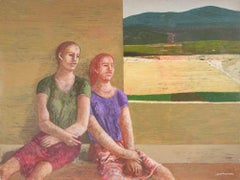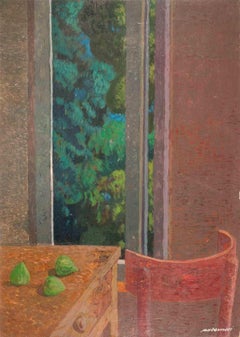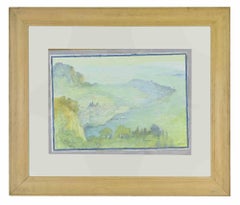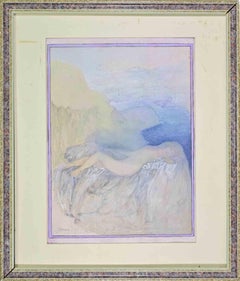Informationen zu Arjun Rathi Design
Arjun Rathi Design ist ein multidisziplinäres Studio, das in den Bereichen Architektur und Lichtdesign arbeitet. Das Studio entwirft und baut dekorative Beleuchtung, Glas- und Beleuchtungsinstallationen und Artefakte. Das Studio arbeitet an beiden Enden des Designspektrums, von Einzelstücken, die gemeinsam mit Handwerkern hergestellt werden, bis hin zu Massenprodukten, die in Zusammenarbeit mit Herstellern entwickelt werden. Das Studio definiert sich nicht durch einen bestimmten Stil, sondern hinterfragt die Objekte unter Berücksichtigung ihres Kontexts und der in ihnen...Mehr lesen

Gründungsjahr 20121stDibs-Anbieter*in seit 2021
Ausgewählte Stücke
1980er, Zeitgenössisch, Figurative Gemälde
Öl, Holzverkleidung
1980er, Zeitgenössisch, Figurative Gemälde
Öl, Holzverkleidung
1980er, Zeitgenössisch, Figurative Zeichnungen und Aquarelle
Pastell, Pappe, Bleistift, Wasserfarbe
1980er, Zeitgenössisch, Figurative Zeichnungen und Aquarelle
Pastell, Pappe, Bleistift, Wasserfarbe
1980er, Zeitgenössisch, Figurative Zeichnungen und Aquarelle
Pastell, Karton, Pappe, Bleistift
1980er, Zeitgenössisch, Figurative Gemälde
Öl, Holzverkleidung
1980er, Zeitgenössisch, Figurative Gemälde
Leinwand, Öl, Holzverkleidung
1980er, Zeitgenössisch, Figurative Gemälde
Leinwand, Öl, Holzverkleidung
1980er, Zeitgenössisch, Figurative Gemälde
Leinwand, Öl, Holzverkleidung
1980er, Zeitgenössisch, Figurative Gemälde
Leinwand, Öl, Holzverkleidung
1980er, Zeitgenössisch, Figurative Gemälde
Masonit, Öl
1980er, Zeitgenössisch, Figurative Zeichnungen und Aquarelle
Leinwand, Öl, Holzverkleidung




